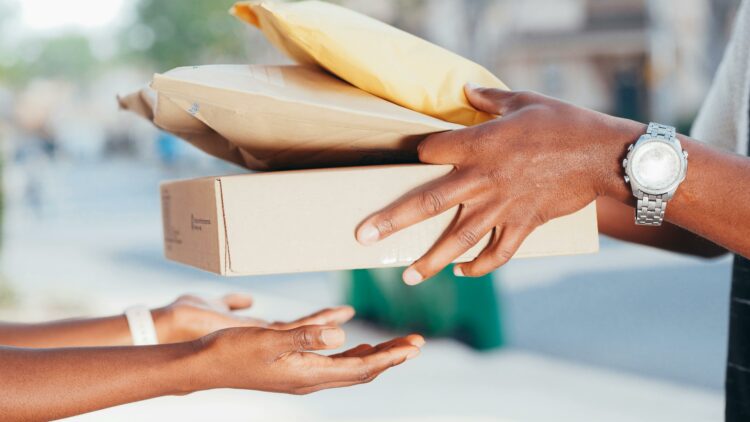
THE COMPLEXITIES OF CUSTOMS AND LOGISTICS
When it comes to online shopping and international shipping, understanding local customs regulations is essential. The requirements for customs clearance, in specific regions like the Caribbean and Latin America can often seem convoluted and challenging to navigate.
People have no idea how challenging it is to receive packages from backed crowdfunded projects. The increasing shipping prices make it challenging but even more frustrating are the customs’ processing time, their handling of packages, and their requirements.
THE REQUIREMENTS FOR CUSTOMS CLEARANCE
Take, for example, the requirements outlined by an online shopping and shipping company with branches based in the Caribbean. Packages must be processed in the customer’s name, with clear invoices detailing the seller and buyer’s names, along with the contents and corresponding purchase amounts. Screenshots, order summaries, and invoices with a value of $0.00 are not accepted, and even payment confirmations of popular payment methods like PayPal are not recognized as valid invoices.
Here are the requirements in detail for Customs Clearance:
- Packages have to be processed in the Customer’s name (Same name on the Invoice)
- If more than one person is registered in the same Account, all of them need to present their tax registration number to be registered.
- All Invoices have to have the names of the Seller plus the Buyer
- Contents have to be identified on the Invoice / Invoices without content description are not accepted
- Each item has to have the amount corresponding to the purchase
- The items on the Invoice must be the same as the contents mentioned on the Air Waybill (AWB)
- For Invoices with several Items of which Items are going to be shipped separately, you are requested to make clear which Item is being shipped by highlighting those Items
- The total amount has to appear on the Invoices (Including Shipping and Taxes) Partial invoices are not accepted
- SHEIN invoices have to be re-checked by the Customer to be sure the total amount is correct.
- Invoices illegible are not accepted.
- Customs does not take PAYPAL as an Invoice.
- Screenshots are not accepted
- Commercial or Proforma Invoices are not accepted
- Order Confirmation / Details are not accepted
- Order Summary is not accepted
- $ 0.00 Invoices are not accepted (Items have to have a value)
- For BOXYCHARM Shipments adding a picture of the content is a MUST

WHY SO CONVOLUTED?
These stringent requirements can pose significant challenges for individuals looking to receive packages or support international projects. For instance, receiving free items or participating in crowdfunding may become complicated due to the strict invoice guidelines.
Such restrictions not only limit individual opportunities but also hinder the flow of international commerce and the support for global initiatives. The imposed restrictions are often because of a lack of controls, the everlasting corruption, and the global reputation of the regions.
WHEN IT’S TOO MUCH
While customs regulations aim to maintain order and security, some requirements may seem excessive. For instance, restrictions on receiving items like books or artwork and the refusal of commercial invoices raise questions about the balance between regulation and practicality. Additionally, the reliance on outdated customs inspection methods, such as manual package opening, can lead to product damage and inefficiencies.
What this means for regular internet users is that if you’re a customer, fan, or follower of a particular company or internet celebrity, you won’t be able to receive freebies like promotional products or participate in giveaways, art auctions, or similar events without receiving an official invoice. This could include gifts you often get during December as a Christmas present. The problem here is that with the current system without the information, it’s difficult for customs to know what’s being sent, who sent it, who’s receiving it, and how much it’s worth. But there should be alternatives to original invoices.
The issue is that some people might try to create their invoices, which opens the door to fraud. They might undervalue or overvalue items, potentially facilitating money laundering. Usually, the order confirmation and the PayPal confirmation contain the necessary information that you would typically find on an invoice. However, for customs purposes based on outdated regulations, having an original invoice is essential for transparency and compliance. However, the term “original” must be defined in this digitized world.
WHEN IT’S TOO EXPENSIVE
In the current digitized world, international shipping costs have surged to unprecedented levels, making it prohibitively expensive for consumers to order products from overseas. Factors such as increased demand, supply chain disruptions, and rising fuel prices have contributed to this surge in shipping costs.
With the global pandemic prompting a surge in e-commerce activity and a shift towards online shopping, logistics companies have struggled to keep up with the surge in demand, leading to capacity constraints and delays. As a result, shipping rates have skyrocketed, leaving consumers grappling with exorbitant fees and surcharges, especially for expedited or express shipping options.
For consumers, the steep rise in international shipping costs has presented significant challenges, forcing many to reconsider their purchasing habits and opt for domestic alternatives whenever possible. The inflated shipping fees not only add to the overall cost of the product but also introduce uncertainty and frustration due to longer delivery times and potential customs delays.
Moreover, businesses reliant on international trade face mounting pressures as they manage the challenge of managing shipping expenses while striving to remain competitive in a global market. As shipping costs continue to soar, stakeholders across various industries are compelled to explore alternative strategies and innovative solutions to mitigate the impact and ensure efficient and cost-effective international logistics operations.
DIGITAL VS. PHYSICAL
In an increasingly digitized world, the disconnect between traditional customs practices and modern commerce becomes apparent. Many businesses still rely on outdated invoicing methods, making it challenging for individuals to participate in online transactions smoothly.
The lack of downloadable digital invoices and the prevalence of non-traditional invoice formats further complicate the customs clearance process. moreover, the customs process can be more efficient using AI and publicly available information about the product and its value.
FINAL THOUGHTS
As we move towards a more digitally integrated world, businesses and customs agencies alike need to adapt to modern practices. Streamlining customs clearance procedures, embracing downloadable digital invoices, and adopting efficient inspection methods are crucial to facilitating international trade and supporting online commerce.
By harmonizing regulations with digital advancements, we can ensure smoother transactions and promote global economic growth. However, in many jurisdictions, particularly in the Caribbean and Latin America, there are still out-of-date regulations that don’t truly align with the digitized world. They still exist because of the incompetence of lawmakers, bureaucracy preventing efficient decision-making, and corruption preventing competent people from getting in the right positions.
The postal service in many countries in the Caribbean and Latin America was already doing a mediocre job, losing packages or delivering damaged packages, which is why most people turned to logistics companies for their online shopping delivery services but then these companies skyrocketed their prices. While some people can receive their orders quickly and undamaged, others must be vigilant in tracking their orders at all times and investing in securing the packages to reach their destinations.
Hoping that at least the shipping prices will drop at some point in the future and that an effective and efficient scanning technology can be used at customs. In the meantime, with all the popularity of online shopping, receiving packages is still a frustrating process for many.



